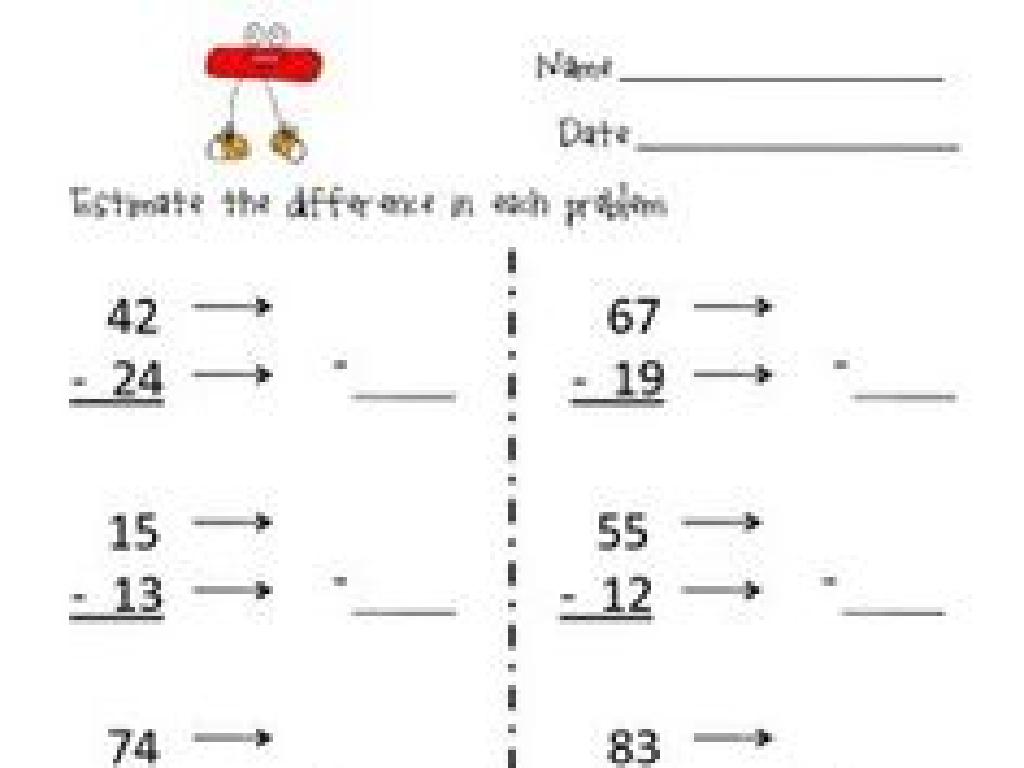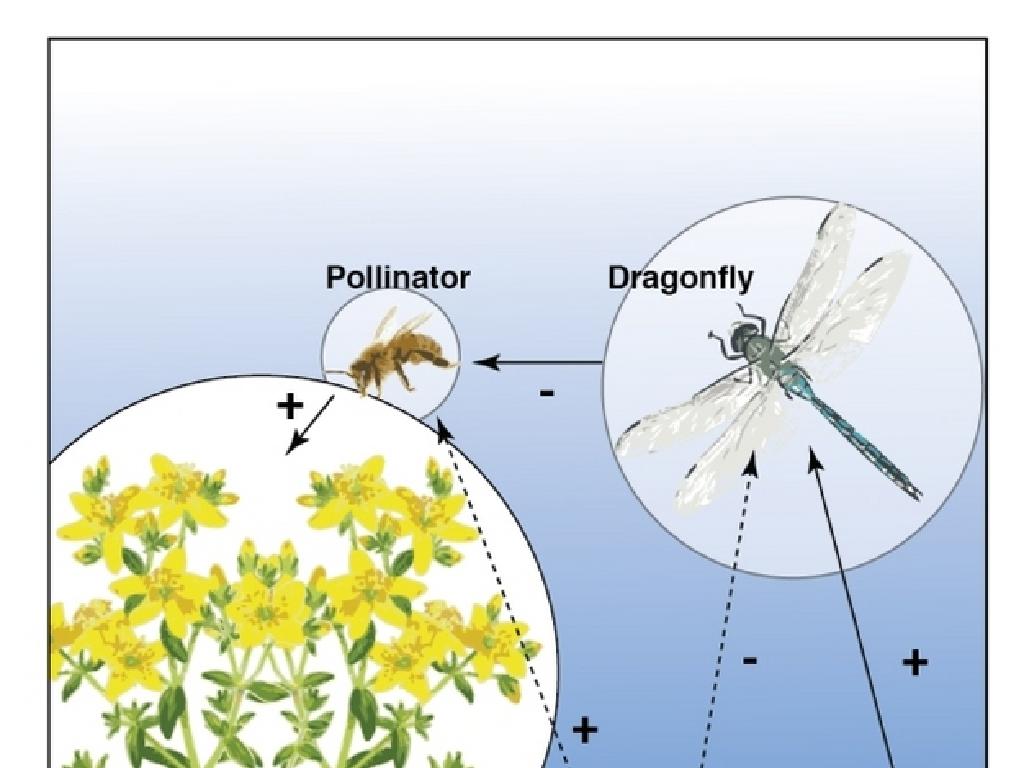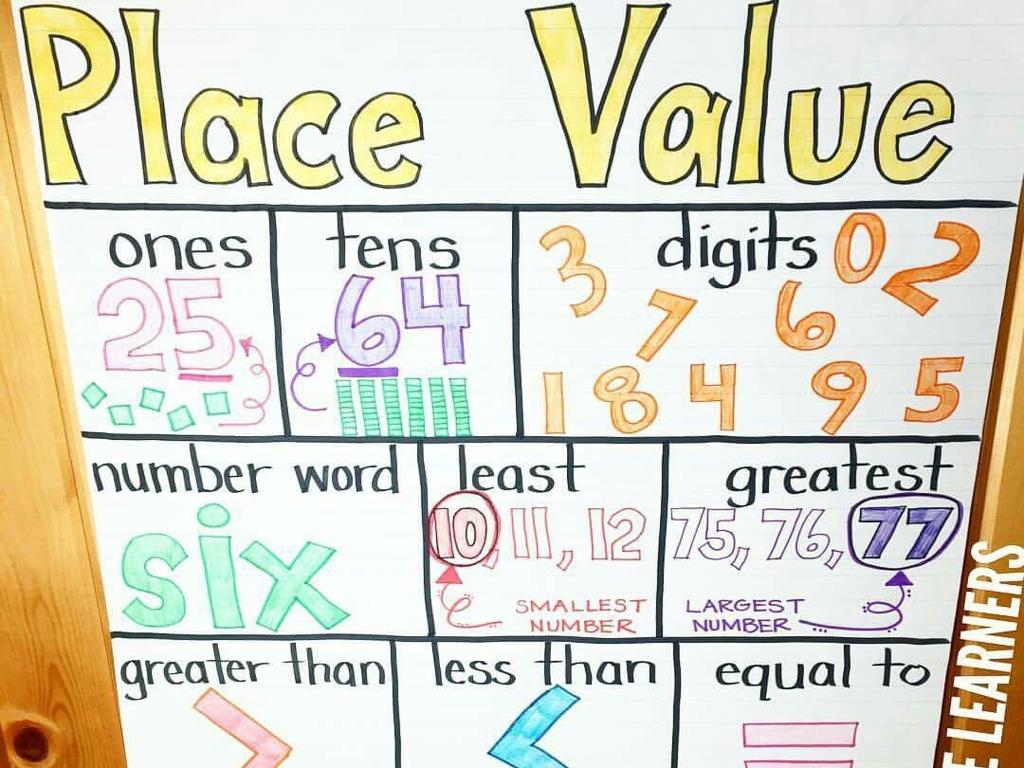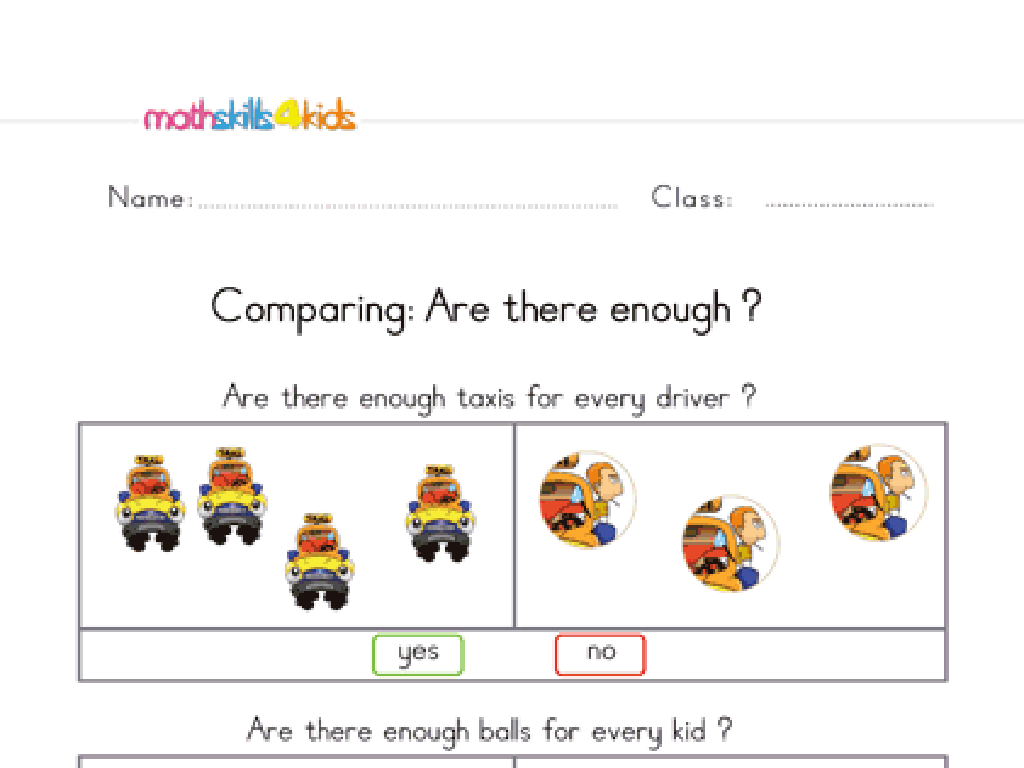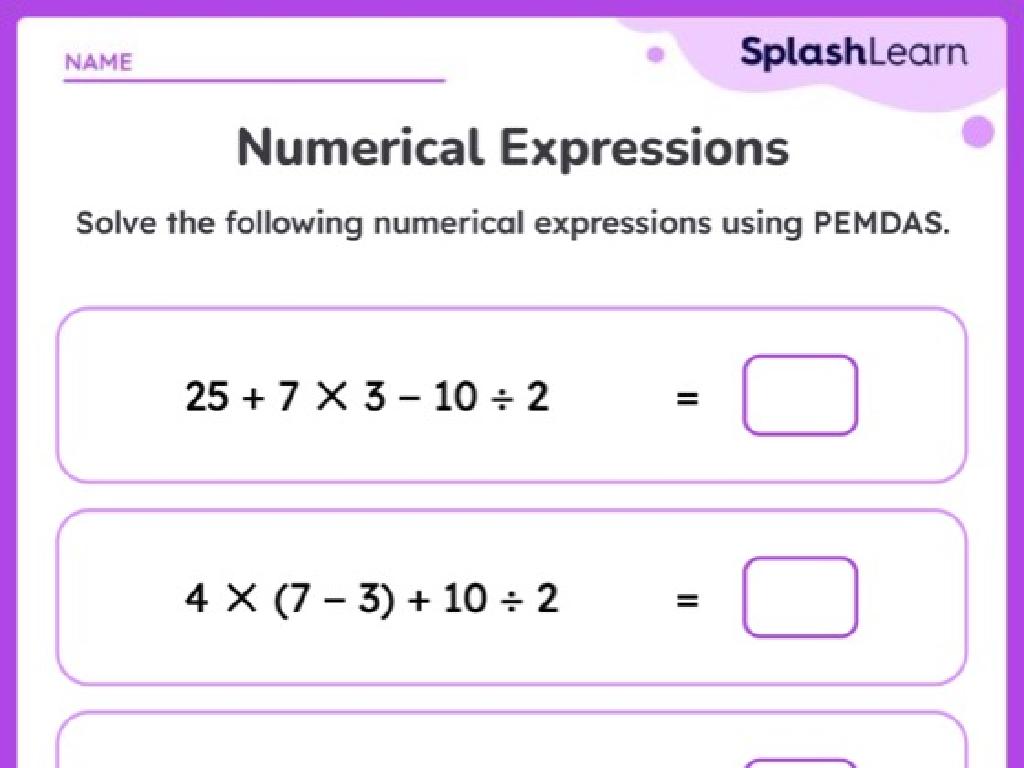Determine The Meaning Of A Word With Pre-, Re-, Or Mis-
Subject: Language arts
Grade: Third grade
Topic: Prefixes And Suffixes
Please LOG IN to download the presentation. Access is available to registered users only.
View More Content
Welcome to Prefix Power!
– Become word detectives today
– Learn how prefixes unlock meanings
– Prefixes like ‘pre-‘, ‘re-‘, ‘mis-‘ give clues about a word
– What are prefixes?
– Prefixes are word parts added to the beginning
– Prefixes change word meanings
– ‘replay’ means to play again, ‘misplace’ means to place wrongly
|
In this lesson, students will learn about prefixes and how they alter the meanings of words. Start by engaging them with the concept of being ‘word detectives,’ looking for clues in words to understand their meanings. Explain that prefixes are like clues that can change or enhance the meaning of the base word. Provide examples of common prefixes such as ‘pre-‘, ‘re-‘, and ‘mis-‘ and how they modify the words they precede. For instance, ‘pre-‘ can signify ‘before,’ ‘re-‘ can indicate ‘again,’ and ‘mis-‘ might mean ‘wrongly.’ Encourage students to think of words they know that include these prefixes and discuss how the prefix changes the meaning. This will help them deduce the meaning of new words they encounter in reading.
Exploring Prefixes: pre-, re-, mis-
– What’s a prefix?
– A prefix is a set of letters at the start of a word.
– Prefixes modify meanings
– They twist the word’s original meaning.
– Examples: pre-, re-, mis-
– ‘pre-‘ means before, ‘re-‘ means again, ‘mis-‘ means wrong.
– Practice with prefixes
|
Introduce the concept of prefixes to the students by explaining that a prefix is like a magical set of letters that when added to the beginning of a word, can change its meaning entirely. Give examples of each prefix and how it alters the word: ‘pre-‘ can turn ‘view’ into ‘preview’, meaning to view before. ‘re-‘ can change ‘play’ to ‘replay’, meaning to play again. ‘mis-‘ can make ‘understand’ into ‘misunderstand’, meaning to understand incorrectly. Encourage the students to think of more words with these prefixes and discuss how the meaning changes. This will help them to start recognizing patterns and understanding new vocabulary by breaking down the words into parts.
The Power of ‘Pre-‘: Understanding Prefixes
– ‘Pre-‘ means ‘before’ or ‘prior to’
– Examples: ‘preview’, ‘predict’
– ‘Preview’ means to see before, ‘predict’ means to say before
– Practice with ‘pre-‘ words
– Find ‘pre-‘ words in a story or create your own
– Discover how ‘pre-‘ changes meanings
– Adding ‘pre-‘ to a word can give it a sense of time
|
This slide introduces the prefix ‘pre-‘ and its meaning of ‘before’ or ‘prior to’. Start by explaining what prefixes are and how they alter the meaning of root words. Provide examples like ‘preview’, which means to see something before it happens, and ‘predict’, which means to say what will happen before it occurs. Engage the class with an activity where they practice identifying or creating ‘pre-‘ words, reinforcing the concept that ‘pre-‘ gives a sense of time to the words it precedes. Encourage students to think of other ‘pre-‘ words and use them in sentences to demonstrate their understanding.
The Magic of ‘Re-‘: Exploring Prefixes
– ‘Re-‘ means ‘again’ or ‘back’
– Examples: ‘rewrite’, ‘return’
– ‘rewrite’ to write something once more, ‘return’ to come back to a place
– Discover more ‘re-‘ words
– Think of words like ‘replay’ or ‘redo’
– Practice using ‘re-‘ words
– Use ‘re-‘ words in sentences
|
This slide introduces the prefix ‘re-‘ and its meaning to the students. Start by explaining that a prefix is a group of letters added to the beginning of a word to change its meaning. ‘Re-‘ is a common prefix meaning ‘again’ or ‘back’. Provide examples such as ‘rewrite’, which means to write something again, and ‘return’, which means to come back to a place. Encourage the students to think of other words that start with ‘re-‘ and use them in sentences. This will help them understand how prefixes can alter the meaning of words and how they are used in context. For the practice activity, students can work in pairs to come up with a list of ‘re-‘ words and create sentences using those words, which they can share with the class.
Oops! It’s ‘Mis-‘: Understanding Prefixes
– ‘Mis-‘ means ‘wrongly’
– When ‘mis-‘ is in front, the word means a mistake was made
– Examples: ‘misplace’, ‘misunderstand’
– ‘misplace’ means to put something in the wrong place, ‘misunderstand’ means to not get the right idea
– Find words with ‘mis-‘
– Practice using ‘mis-‘ words
– We’ll use ‘mis-‘ words in sentences to see how they work
|
This slide introduces the prefix ‘mis-‘ to students, explaining that it indicates something has been done incorrectly. Provide clear examples like ‘misplace’ and ‘misunderstand’ to illustrate the concept. Encourage students to think of other words that start with ‘mis-‘ and discuss the meanings. As an activity, students can use these ‘mis-‘ words in their own sentences, which will help reinforce their understanding of the prefix and how it changes the meaning of the base word. This activity will also enhance their vocabulary and comprehension skills.
Prefix Practice: Creating New Words
– Match prefixes to base words
– Craft words with ‘pre-‘, ‘re-‘, ‘mis-‘
– Examples: ‘prepay’, ‘redo’, ‘misplace’
– Share your creations with the class
– Understand how prefixes change meanings
– ‘pre-‘ means before, ‘re-‘ means again, ‘mis-‘ means wrong
|
This slide introduces an interactive class activity focused on understanding and using prefixes. Students will engage in a matching exercise to combine common prefixes with base words, fostering their grasp of how prefixes alter word meanings. Encourage creativity as they form new words with ‘pre-‘, ‘re-‘, and ‘mis-‘. After crafting their words, students will share with the class, allowing for peer learning. As a teacher, provide guidance on the meaning of each prefix and how it modifies the base word. For example, ‘pre-‘ can denote ‘before’ as in ‘preview’, ‘re-‘ can indicate doing something again like ‘rewrite’, and ‘mis-‘ often means something is done incorrectly, such as in ‘misjudge’. Prepare to offer examples and assist students in understanding the new vocabulary they create.
Prefix Game: ‘Fix the Prefix’
– Let’s review prefixes with a game
– Roll the dice to move on the board
– Face challenges using prefixes
– Challenges include ‘pre-‘, ‘re-‘, or ‘mis-‘
– Correct sentences help you advance
– Example: ‘replay’ means to play again
|
This interactive game is designed to help students understand and practice using prefixes. ‘Fix the Prefix’ will reinforce the concept of how adding ‘pre-‘, ‘re-‘, or ‘mis-‘ to the beginning of a word can change its meaning. As students roll the dice and move around the board, they will encounter spaces that prompt them to use a prefix in a sentence correctly. If they do so, they can move forward. This activity encourages active participation and makes learning prefixes fun. For the teacher: Prepare a game board with spaces that include prefix challenges. Have sentences ready for students to complete with the correct prefix, or let them create their own. Provide examples and guidance as needed. Possible activities could include forming new words with prefixes, matching prefixes to base words, or correcting misused prefixes in sentences.
Class Activity: Prefix Hunt
– Be a prefix detective in a book
– List 5 words with ‘pre-‘, ‘re-‘, ‘mis-‘
– Examples: ‘replay’, ‘misbehave’, ‘preview’
– Explain new meanings to a partner
– How does ‘re-‘, ‘mis-‘, or ‘pre-‘ change the word?
– Share your findings with the class
|
In this engaging class activity, students will search for words containing the prefixes ‘pre-‘, ‘re-‘, and ‘mis-‘ in their favorite books, which will help them understand how prefixes alter the meanings of base words. Provide guidance on what prefixes are and how they can change the meaning of a word. For example, ‘re-‘ can mean ‘again’, so ‘play’ becomes ‘replay’, to play again. ‘Mis-‘ often means ‘wrongly’, so ‘behave’ becomes ‘misbehave’, to behave badly. ‘Pre-‘ can mean ‘before’, so ‘view’ becomes ‘preview’, to view before something is fully available. After finding the words, students will explain the new meanings to their classmates, fostering peer learning. Encourage students to discuss the importance of context in understanding the new meaning. As a teacher, be ready to provide additional examples if students struggle to find words or understand the meanings.
Conclusion & Homework: Prefix Word Detectives
– Celebrate your hard work today
– Prefixes transform word meanings
– ‘pre-‘, ‘re-‘, ‘mis-‘ alter original words
– Write a story with 10 prefixed words
– Use words with ‘pre-‘, ‘re-‘, ‘mis-‘ in a creative story
– Share your stories next class
|
Well done to all the students for learning about prefixes today! Remember, prefixes like ‘pre-‘, ‘re-‘, and ‘mis-‘ can completely change the meaning of a word. For homework, students are tasked with writing a short story that includes at least 10 words with prefixes. This will help reinforce their understanding of how prefixes work and allow them to practice using new vocabulary in context. Encourage creativity and remind them to be prepared to share their stories in the next class for discussion. This activity will not only enhance their vocabulary but also their writing skills.

